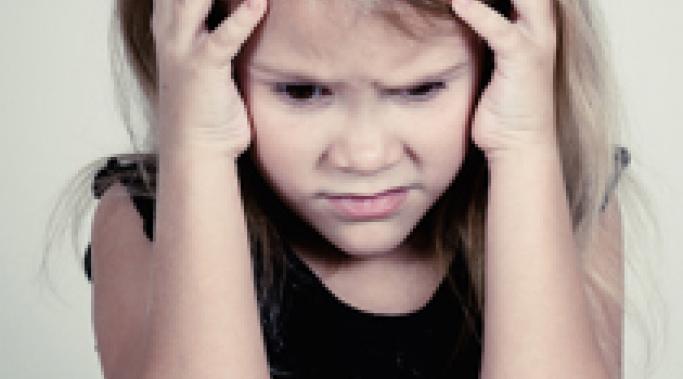Blogs
There is a great deal of misunderstanding when it comes to food, and those food myths hinder binge eating disorder (BED) recovery. It can be what the "healthiest" thing is to eat or the latest diet fad. When recovering from an eating disorder, we need to remember that current food fads are usually not the best for us. We know better and need to ignore what the trends are and stick to the balanced eating plan which keeps us from using behaviors. Watch for food myths in your binge eating disorder recovery.
Mental health stigma keeps many from seeking treatment (The Stigma of Seeking Mental Health Help and Treatment). When an illness such as schizophrenia or bipolar exists, two things commonly occur. The first is a symptom of a mental health issue which stigma makes worse called anosognosia. Anosognosia is when you have a mental health diagnosis but lack insight into your condition -- a huge problem with people who suffer from bipolar disorder. When you add this condition to mental health stigma, sufferers will not seek treatment because of these negative attitudes towards mental illness and their recovery period will be a much longer one. But that's not the only problem that may keep you from treatment
For bipolar youth, self-care strategies are important. Self-care sounds pretty self-explanatory, right? We all know that we are supposed to take care of ourselves, but so often we neglect to do it (Practicing Self-Care Is Hard But Vital For Mental Health). Think of yourself as a car. You need your car for a lot of different reasons. If you don't take the time to care for it, get the oil changed, rotate the tires, wash it, or get a tune up, it doesn't run properly. Your mind and body work the same way. When you don't take the time to give yourself the things that you need to keep yourself healthy, things don't run as smoothly. Learn these self-care strategies for bipolar youth to keep yourself running smoothly.
How to help your child with obsessive-compulsive disorder (OCD) is not in any parenting manual. Helping your child with OCD is almost impossible when you don’t know about it yourself.
Recently I’ve gone through a really nasty bipolar mixed episode and one night I was reminded that distraction is a major bipolar coping skill that I use. I do it without even thinking about it much of the time. My brain just purposefully shifts from agonizing emotional thoughts to unemotional ones. Activities at that time are similar. Distraction as a bipolar coping skill is incredibly useful.
It is generally believed that drinking makes schizophrenia and schizoaffective disorder worse (Drinking Too Much Alcohol? How Much Alcohol is Too Much?). But until very recently, I drank even though I have schizoaffective disorder and am on medication for it. Okay, I was a very light drinker, but I still drank. Then I just stopped. This is why.
If you find yourself anxious in many different situations, especially those that relate to your performance, behavior, or relationships with others, you might consider the possibility that you have unrealistically high standards for yourself. It’s not uncommon for people to hold themselves to high standards, and doing so can be motivating. Impossibly high standards, though, can make people anxious and interfere in their lives (How Not to Expect Too Much from Yourself). If your own high standards are making you anxious, there’s a way to reclaim your life.
Intense emotions and panic are hard to go through. As a person with borderline personality disorder (BPD), I have intense emotions all day, every day. It never stops. There is no complete relief. The best way for me to cope with feeling so emotionally charged is to distract myself with an activity. This could be cleaning, exercising, reading, watching television, playing and snuggling with my pets, cooking, listening to music, writing, or many other coping activities. I've come to realize that borderlines can deal with intense emotions and panic.
You don’t want your eating disorder to magically disappear. You may be thinking, “Um, yeah I do,” but hear me out. In counseling, there’s something known as the “miracle question.” Often it sounds like, “If you woke up tomorrow and you no longer had your problem, how would you be different? How would your life be different? How would your future be different?” The process is supposed to get you to think about, envision, and even feel what your life might be like if your problem were gone. But here’s why you don’t want your eating disorder to magically disappear.
Anger is an unavoidable, normal part of the human experience; learning to channel anger constructively is a process. Undoubtedly, you will get mad many times over the course of your lifetime. But you can channel your anger constructively and bring about meaningful change in upsetting situations.










I believe she will only be able to rid herself of her demons, and hopefully her BPD as well, when she's ready to confront the abuse of her father. If she can put the blame where it belongs, she may stop projecting that victim/perpetrator cycle on the present men in her life. These demons are a metaphor for the purgatory she has created for herself. That reality has consequences in the real world, but it need not be real in the tangible sense. Exorcising her demons will require the expenditure of real physical energy and probably the destruction of aspects of her personality. If this ever happens, and it's possible but not probable, then these demons will evaporate. They are only as real as one's personality is real. In short, reality is not the question, it's what you make of the things you feel to be real.